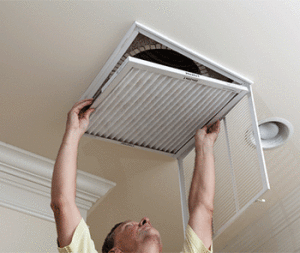When planning remodeling projects, make sure you put HVAC protection on your prep list. Dust stirred up during home projects can infiltrate the system and cause many problems down the line. Here are steps to keep your HVAC system safe.
Seal Off Ductwork
You probably won’t see all the dust that enters vents and registers, but you will experience the effects of it later on. Debris in the ductwork can wind up in the machinery. There it is likely to coat A/C coils and get into furnace burners and other components where it will interfere with normal, safe operation.Dust in ductwork also diminishes air quality in your home. It can attract allergens, such as mold, and these will be blown into the home. Cover all vents and registers and you will reduce the amount of remodeling debris that enters ductwork.
Use Plastic Sheeting
When you cannot simply shut a door to seal off work areas, make sure to hang plastic sheeting to confine debris. This keeps the mess in single areas, which makes it easier to clean up and prevents particles from entering your home’s air supply.
Use Good Cleanup Methods
You should turn the HVAC system off when doing any demolishing, sawing or sanding, but also make sure the air is clear and surfaces clean before turning it on again. It is not enough to let the dust settle because it will easily become airborne again. Instead, keep windows open and use a vacuum cleaner to remove dusty messes on floors. Sweeping stirs dust around and isn’t as effective.
Use a High-Quality HVAC Filter
Thick, pleated air filters will trap smaller particles of dust, and these filters are extra helpful during a remodel because of that. Fine particulates are created when working with drywall or sanding grout, for example, and cheap filters won’t always keep these out of your heating and cooling system. If your project lasts for several weeks, check the filter weekly and change it when it is clogged.
For more information about protecting your HVAC equipment, please contact us at Air Assurance.
Our goal is to help educate our customers in the Tulsa and Broken Arrow, Oklahoma area about energy and home comfort issues (specific to HVAC systems). Credit/Copyright Attribution: “bikeriderlondon/Shutterstock”








